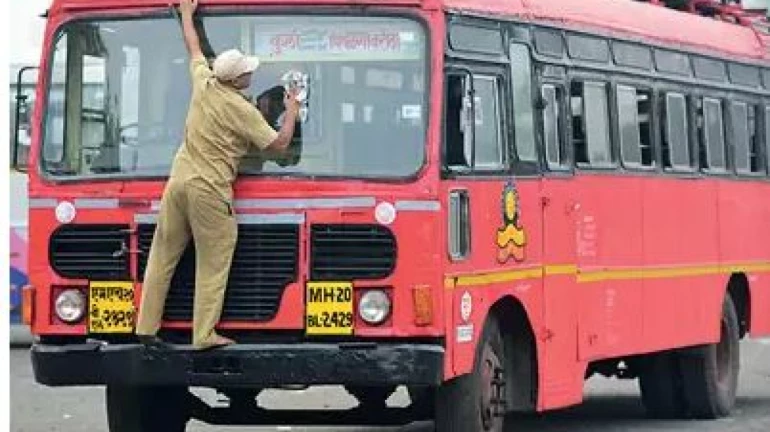
The Maharashtra State Road Transport Corporation (MSRTC) began operations in a full-fledged manner on Friday in the non-red zones all across Maharashtra.
The buses are said to maintain social distancing with 50 per cent occupancy and one passenger in every two seats. As per sources, masks were mandatory as the drivers used sanitizers and conducted temperature check at points.
On average six passengers are to travel on each bus. However, the number of passengers is said to go up gradually. MSRTC resumed operations after a gap of two months since the lockdown came into force. Intra-district bus operations restarted across the state excluding the red zones. MSRTC services, including those of its iconic and omnipresent `Lal Dabas' had come to a screeching halt from March 22 with the outbreak of coronavirus.
The MSRTC had earlier ferried over three lakh migrants up to the state borders and to various districts from the state borders since the first week of May. The biggest state road transport corporation of the country has a fleet of around 18,000 buses. The MSRTC had operated 1,200 buses and ferried 27,528 migrants, most of whom were on the way to Maharashtra's borders, heading for northern states. The MSRTC had offered them free bus ride up to the state borders. Anil Parab, the transport minister, further appealed that the migrant labourers should travel by MSRTC buses, avoiding risky modes of travel.
The plight of the migrant workers has been making the headlines for a while now. The mass exodus of migrants from the cities has raised concerns over an impending economic crisis. The industries that were dependent on these workers are said to suffer massively. While this can be used to bring attention to the plight of migrant workers, who have been rendered invisible in our cities, such an economic focus could further eclipse the needs of vulnerable groups who are often accused of not being ‘economically productive’. In such a situation, it is crucial that we understand the contribution of the daily wage labourers and the impact of the economic shutdown in their everyday lives.





